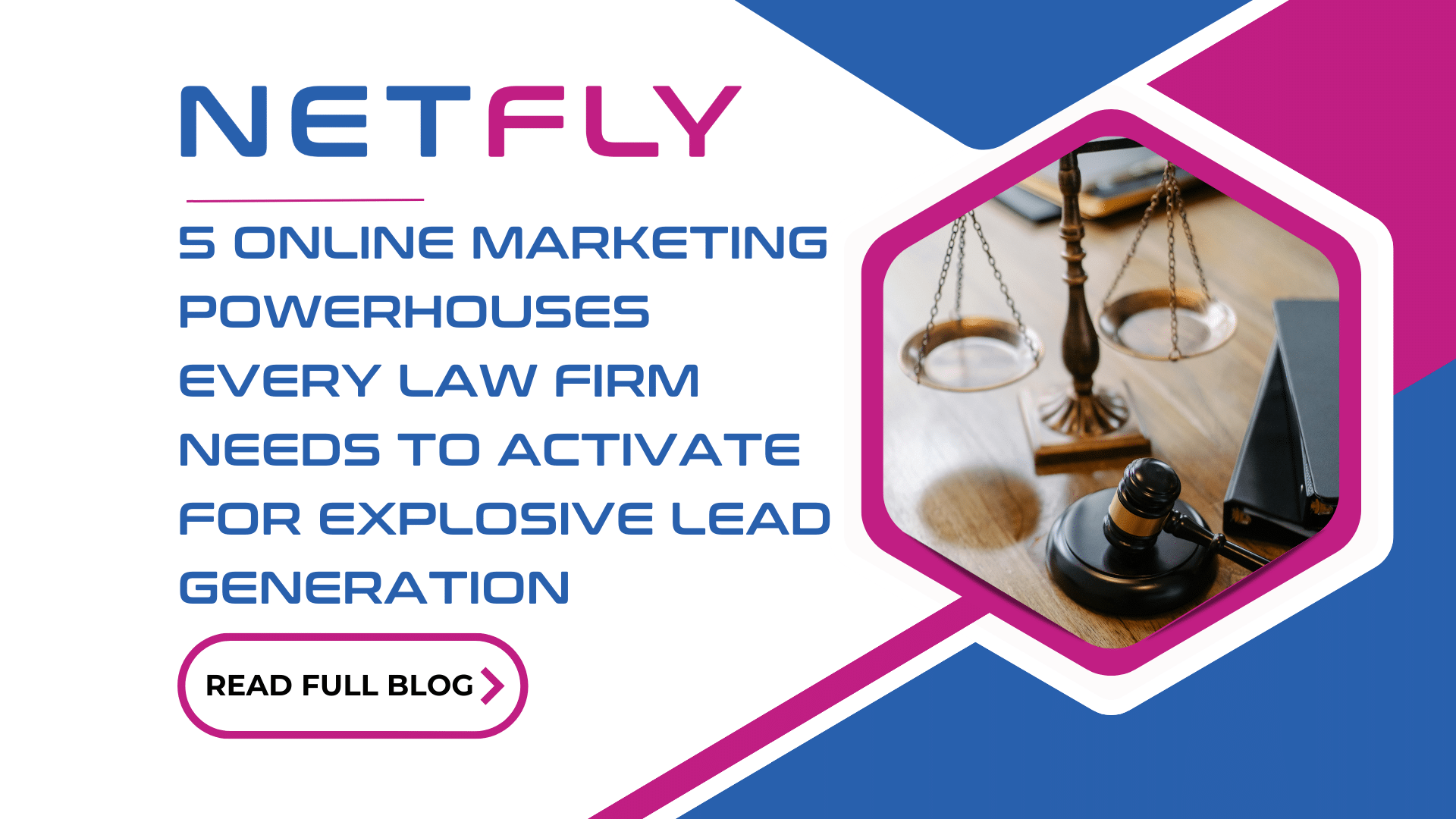Key Takeaways:
- SEO is Your Foundation: Effective SEO ensures your firm appears in relevant searches, connecting you with potential clients actively seeking legal services.
- Content is King: High-quality, engaging content positions to your law firm as a thought leader and builds trust with your audience.
- Social Media for Engagement: Utilizing platforms like LinkedIn, Facebook, and Twitter helps in building relationships and enhancing your firm’s online presence.
- Precision in PPC: Pay-per-click advertising, when done correctly, can be a cost-effective way to reach your targeted audiences and generate leads.
- Email Marketing Builds Relationships: Personalized and informative email campaigns can nurture leads and keep your firm top-of-mind.
In the legal world, where every client matters and competition is fierce, understanding and leveraging the digital landscape is not just beneficial – it’s essential. Like a well-crafted argument in the courtroom, a strategic approach to online marketing can make all the difference. Let’s dive into the five online marketing powerhouses that can transform your law firm’s lead-generation process.
1. Search Engine Optimization (SEO): The Silent Advocate
Think of SEO as your silent advocate, working tirelessly behind the scenes. It’s not just about being found; it’s about being found by the right people.
- Keywords are Your Opening Statements: Research and utilize keywords that potential clients are searching for. This is about understanding their needs and questions.
- Optimize for Victory: Your website should be a beacon of information, optimized for search engines. From mobile responsiveness to fast loading times, make your online presence count.
- Local SEO, Your Home Turf: Dominate your local market. Ensure your firm appears in local searches and maps by optimizing for local SEO – your digital locality matters as much as your physical one.
2. Content Marketing: The Art of Storytelling
Content marketing is storytelling with a purpose. It’s about creating narratives that resonate with your audience, establishing your firm not just as a service provider, but as a thought leader.
- Craft Your Narrative: Whether it’s through insightful blog posts, informative videos, or comprehensive eBooks, your content should showcase your expertise and build trust.
- Distribute with Purpose: It’s not just what you say; it’s how and where you say it. Leverage social media, newsletters, and guest blogging opportunities to amplify your voice.
- Engage, Educate, Elevate: Your content should do more than just inform; it should engage and elevate the conversation around legal issues pertinent to your clientele.
3. Social Media Marketing: The Connector
Social media is where connections are made. It’s a digital handshake, a chance to build rapport and trust.
- Choose Your Platform Wisely: LinkedIn’s professional terrain might suit you better than the casual grounds of Facebook, or perhaps Twitter’s brevity resonates with your firm’s communication style.
- Engagement is Key: Foster conversations, participate in discussions, and share relevant content. Be more than just a presence; be a part of the community.
- Success Stories: Highlight client successes (with their permission, of course) to show how your firm has made a positive impact.
4. Pay-Per-Click Advertising (PPC): The Strategic Bidder
PPC is like a high-stakes auction. You’re bidding for attention, and the currency is relevance and precision.
- Targeted Campaigns: Create ads that speak directly to the needs of your potential clients. Tailor your message to address their specific legal concerns.
- Optimize Your Spend: Track and measure the performance of your ads. Adjust your strategies based on what works, ensuring your investment yields the highest return.
- Landing Pages that Convert: Lead potential clients to a landing page that continues the conversation started by your ad. Make it easy for them to take the next step.
5. Email Marketing: The Personal Touch
Email marketing is your chance to reach out personally. It’s a direct line to your audience, a way to nurture leads and keep your firm top-of-mind.
- Build a Substantial List: Offer value in exchange for emails. Whether it’s a free consultation or an insightful guide, give people a reason to hear from you.
- Craft Emails That Matter: Each email should provide value, whether it’s legal insights, firm updates, or helpful resources.
- Stay Compliant, Stay Trustworthy: Adhere to legal standards and privacy laws. Your credibility is paramount.
Conclusion
In the realm of online marketing, these five powerhouses are more than just tools; they are extensions of your firm’s ethos and commitment to service. Like any great legal strategy, their power lies not just in their individual effectiveness but in how they complement and enhance each other.
Remember, the digital landscape, much like the law, is ever-evolving. Stay informed, stay adaptable, and most importantly, stay true to the values that define your practice.
Eager to transform your firm’s online presence? Reach out for a consultation, or download our comprehensive guide on digital marketing for law firms. Let’s build a strategy that resonates with your firm’s unique voice and vision.
FAQ
Q: How Important is SEO for Law Firms?
A: SEO is crucial for law firms. It improves your visibility in search engine results, making it easier for potential clients to find your services. A well-optimized website also enhances user experience, which can influence a client’s decision to choose your firm.
Q: Can Social Media Really Attract Clients for Law Firms?
A: Absolutely. Social media is a powerful tool for building relationships and enhancing brand visibility. By sharing valuable content and engaging with your audience, you can establish your firm’s credibility and expertise, attracting potential clients.
Q: What Type of Content Should Law Firms Focus On?
A: Law firms should focus on creating content that is informative, relevant, and addresses the common questions or concerns of their target audience. This includes blog posts, FAQs, case studies, and guides on legal processes or laws relevant to your practice areas.
Q: Are PPC Campaigns Cost-Effective for Law Firms?
A: PPC campaigns can be highly cost-effective if managed properly. They allow for precise targeting, so your ads are shown to users actively searching for legal services. With careful budget management and performance tracking, PPC can yield a high return on investment.
Q: How Often Should Law Firms Send Out Marketing Emails?
A: The frequency of marketing emails should balance between maintaining engagement and avoiding spamming your subscribers. A good starting point is once or twice a month, but this can be adjusted based on the engagement levels and preferences of your audience. Remember, the quality and relevance of the content are more important than frequency.








